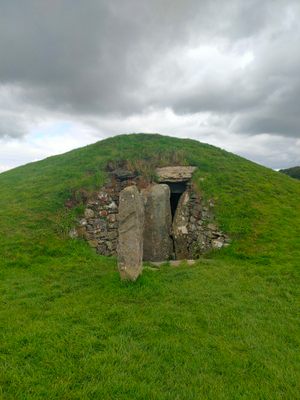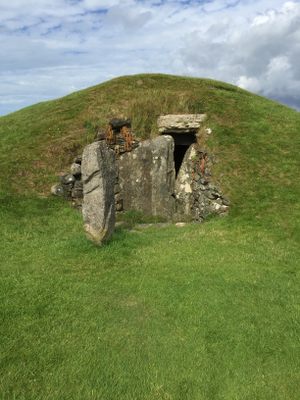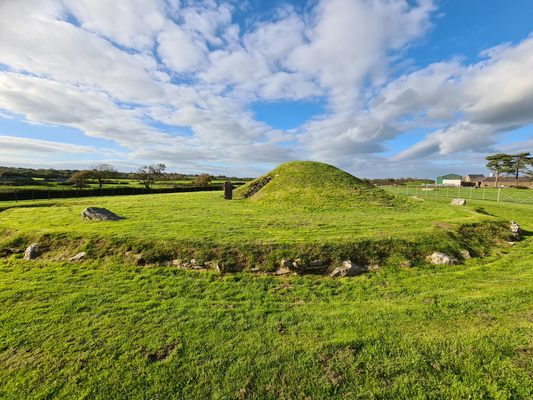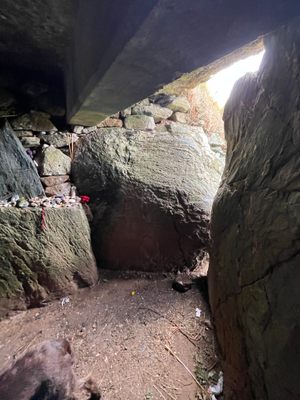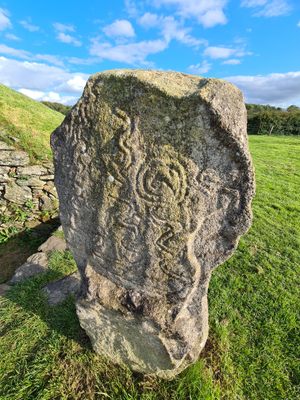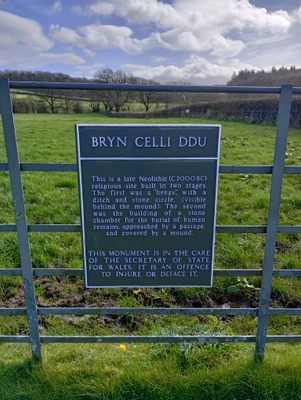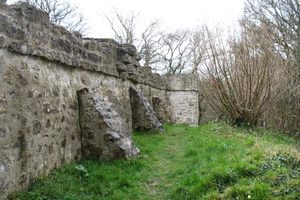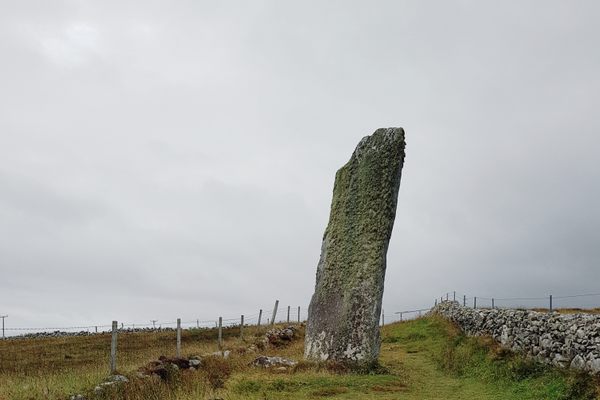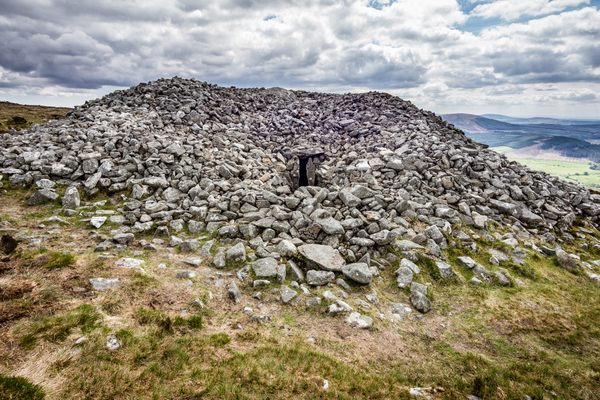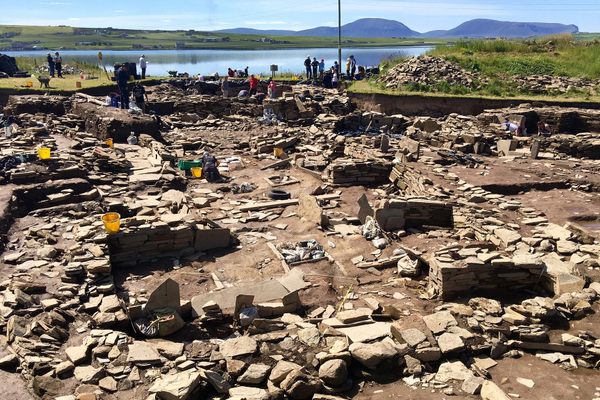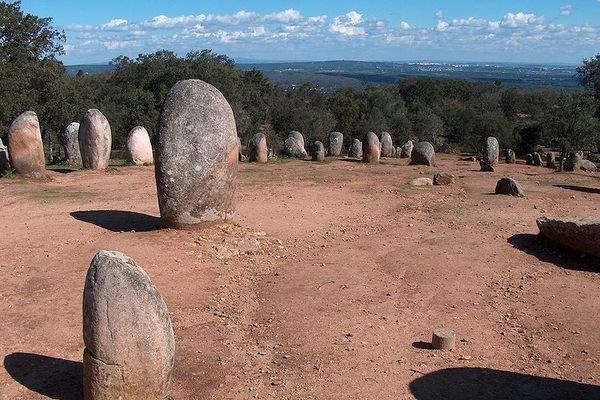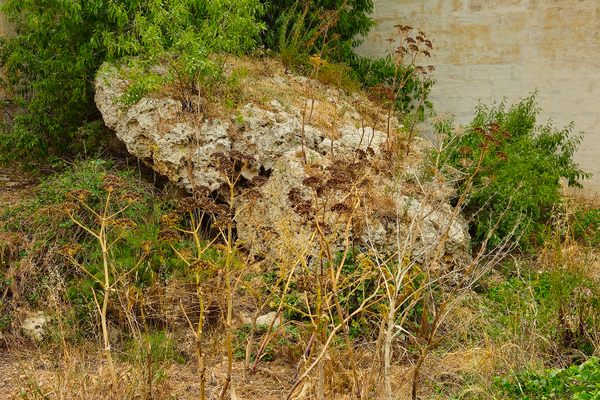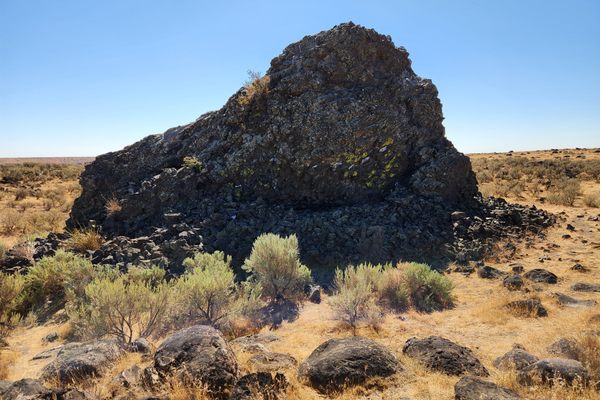About
Now located in a farmer's field, Bryn Celli Ddu (The Mound in a Dark Grove) used to be a simpler stone henge but over centuries of rediscovery and excavation, it now looks more like an incredibly well-preserved barrow hill.
The stone circle and buried henge on the ground now known as Bryn Celli Ddu was first discovered in in the 1600's when medieval grave robbers pillaged the site for any valuable artifacts that might have been located on the site. It wasn't until the 1920's that modern archaeologists got around to excavating the site, finding beads, arrowheads, and human bones from the neolithic era of the mound's construction. A carved stone column was also found in the burial chamber but was removed and placed in a Cardiff museum. A replica of the stone column has been replaced outside the entrance to the hill. In addition, the hill covering the stone passage and burial chamber was also enlarged to make it look more complete.
Thanks to the restorations and renovations, the site now appears to be one of the most complete and iconic burial barrows in Europe. Its actually thought that the original barrow hill was much bigger, but the current one has been kept at a reasonable height as to not obstruct the view of other nearby landmarks. Whether authentically neolithic or just built to look that way, stepping into Bryn Celli Ddu is still a haunting experience.
Related Tags
Know Before You Go
Located off tiny, winding back roads but is well sign-posted. There is a parking lot available; you will need to walk about half a mile through fields on a decent path.
Community Contributors
Added By
Published
March 27, 2014



